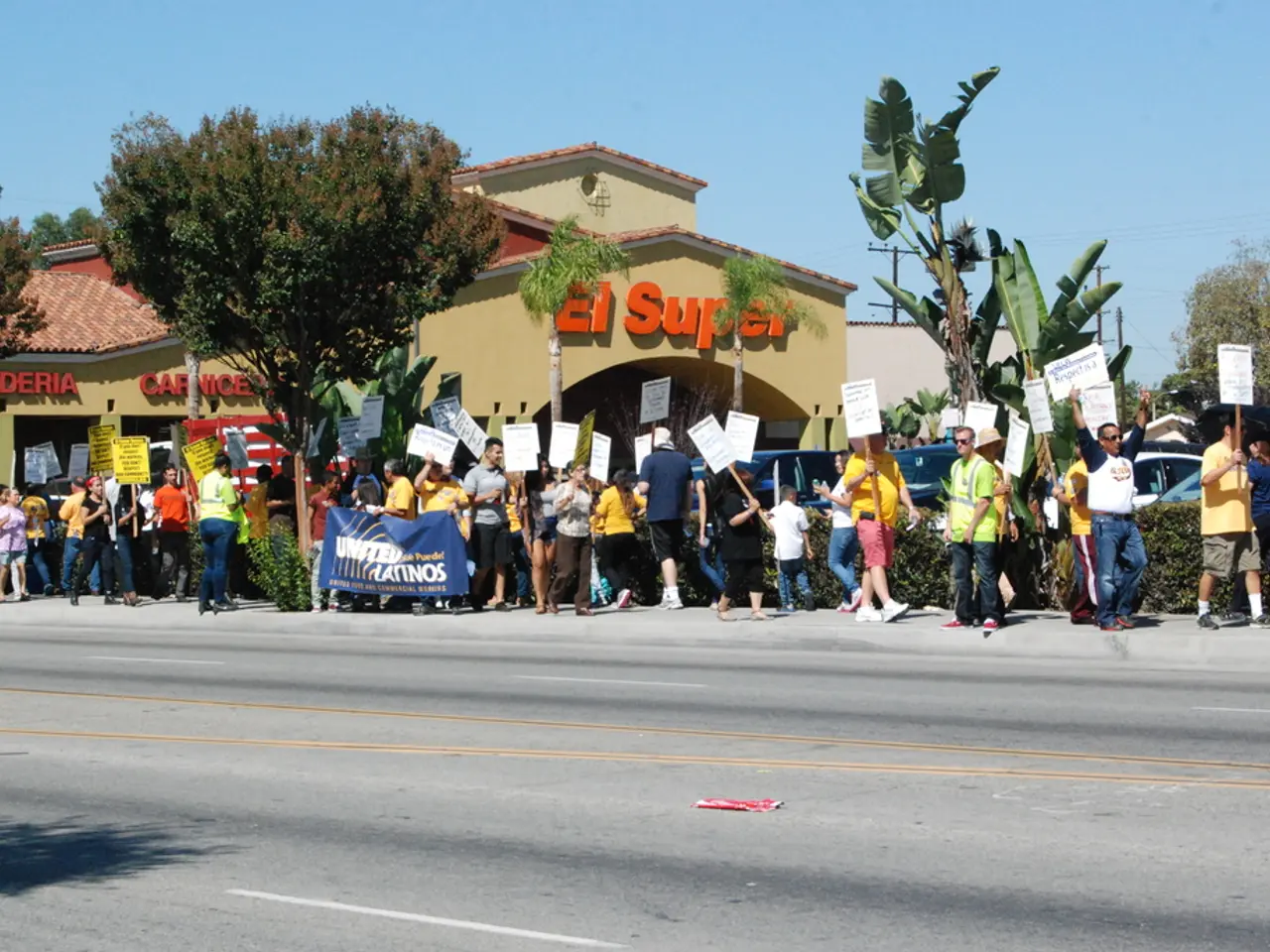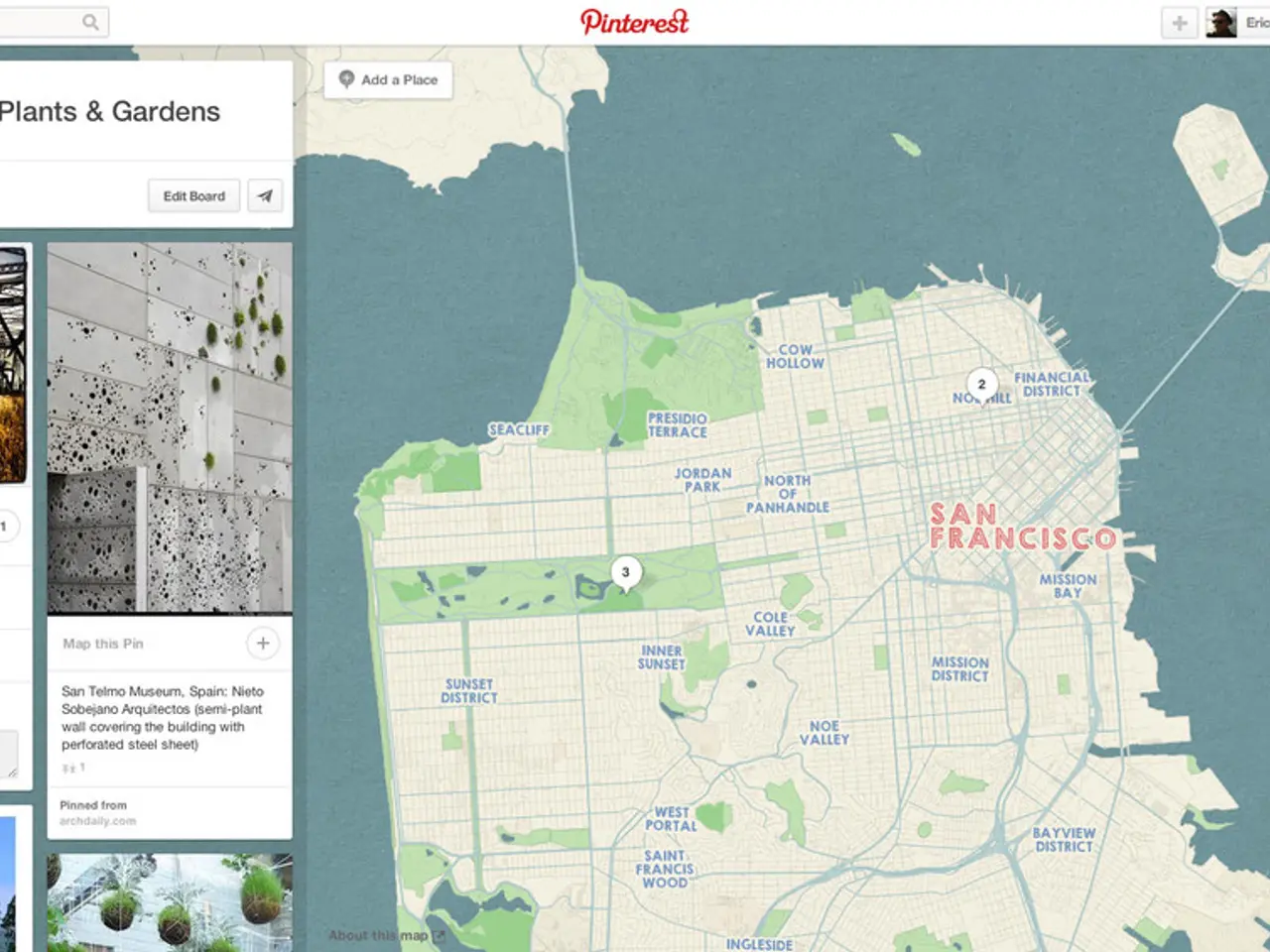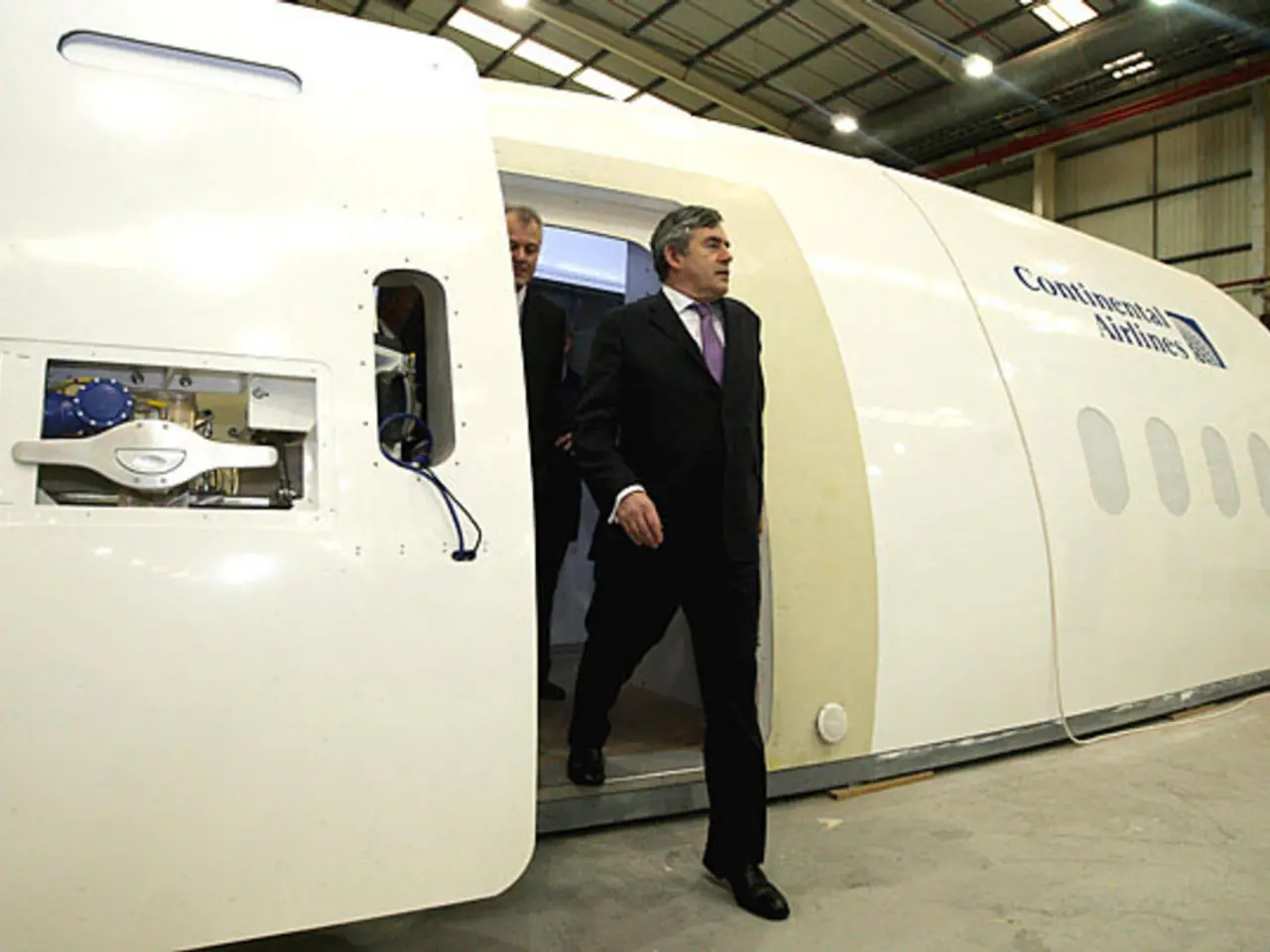Protestors focus on local congresswoman due to support for Trump's megaproject amidst healthcare budget reductions
The "One Big Beautiful Bill Act," President Trump's proposed legislation, has returned to the House of Representatives following its narrow passage in the U.S. Senate on July 1, 2025. The bill, which passed with Vice President J.D. Vance providing the tie-breaking vote, now faces scrutiny as the House prepares for floor debate.
One of the key concerns surrounding the bill is its potential impact on Medicaid, the healthcare programme for low-income individuals. The Senate version of the bill contains provisions that would result in nearly $1 trillion in Medicaid cuts, a figure significantly larger than the initial House proposal. These reductions have raised concerns about their impact, particularly on states with large Medicaid populations, such as California.
In California, approximately 3.4 million residents could potentially lose their state Medi-Cal health insurance under the proposed bill. Given that more than half of California children receive healthcare coverage through Medi-Cal, and over a third of the state's population is enrolled, the potential loss of coverage could have a significant impact on healthcare access in California's diverse and populous communities.
Healthcare advocates are urging the House to mitigate the bill’s Medicaid cuts to protect patient access and health system stability. Rep. David Valadao, who represents more than half a million Central Valley residents who rely on Medicaid, the most of any congressional district in California, has stated he will not support a final reconciliation bill that makes harmful cuts to Medicaid, puts critical funding at risk, or threatens the stability of healthcare providers in his district.
The proposed cuts have also raised concerns about the potential strain on hospitals and health systems. The American Hospital Association (AHA) has highlighted that these cuts could lead to increased uncompensated care costs, service and staff reductions, longer emergency department wait times, and even potential hospital closures, especially in rural and underserved areas.
In Laguna Woods, Shari Home and her husband, who suffers several chronic health conditions, have experienced firsthand the importance of Medicaid and food assistance. After her husband fell last year, they applied for and received Medi-Cal and food assistance, which has been a lifesaver for them.
As the House considers the bill, it remains to be seen how it will address the concerns raised about Medicaid cuts and their potential impact on healthcare access. The House and Senate will now work to reconcile their two different versions of the bill, with the pressure mounting to act quickly to meet President Trump's July 4 deadline.
- The potential impact of the "One Big Beautiful Bill Act" on Medicaid, particularly in California, is a matter of significant concern.
- Rep. David Valadao, representing more than half a million Central Valley residents who rely on Medicaid, has expressed his opposition to any final reconciliation bill that makes harmful cuts to Medicaid.
- In Los Angeles, UCLA, a renowned educational institution, has released a statement urging the House to reconsider the proposed Medicaid cuts, citing potential negative effects on the health and well-being of its students and staff.
- Furthermore, the proposed cuts have sparked discussions in local politics, with general-news outlets in California extensively covering the Rams' game on the same night serving as a stark reminder of the priorities of the general public amidst political debates.




